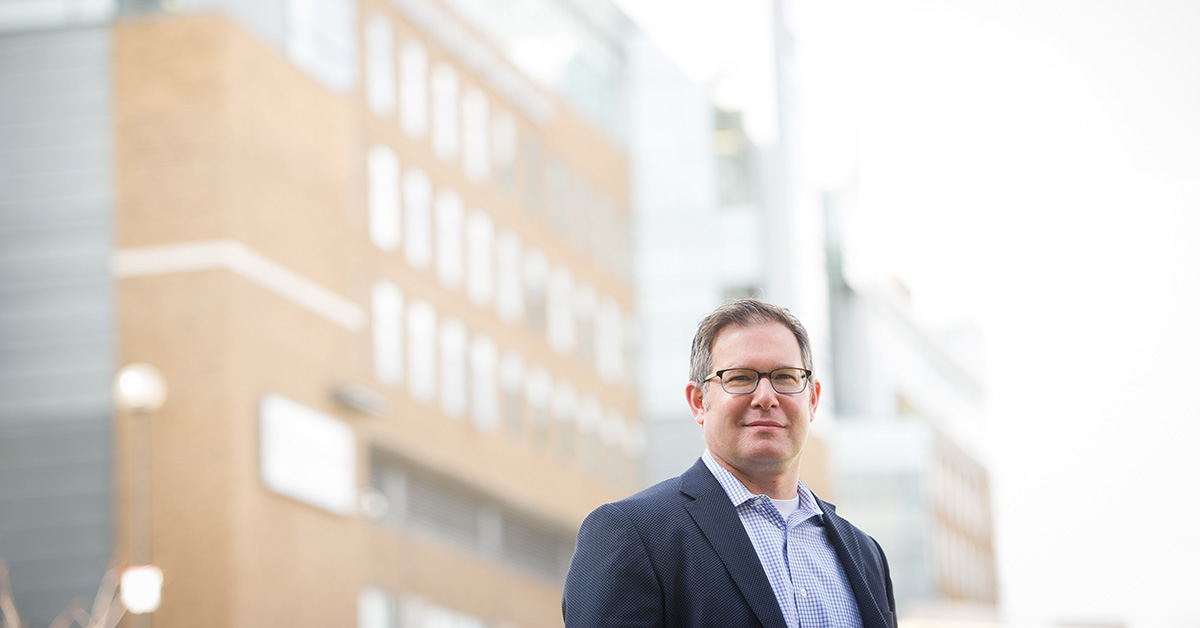CV: Meet Dr. Sander Hitzig
Bio basics: Dr. Sander Hitzig is a scientist and program research director of the St. John’s Rehab Research Program. He is also an assistant professor in the department of Occupational Science and Occupational Therapy and in the Rehabilitation Sciences Institute at the University of Toronto. Dr. Hitzig joined Sunnybrook Research Institute (SRI) in 2016, after working at Toronto Rehab for more than 10 years. He holds a master’s degree in educational psychology from McGill University and a PhD in psychology from York University.
The focus of Dr. Hitzig’s research is on examining issues associated with aging with a disability, assessing the impact of primary impairments and secondary health conditions on quality of life, and identifying factors that promote health and well-being in the community. His interests include understanding the role of social networks on health and quality of life outcomes following disability, developing and validating patient-reported outcomes, and evaluating novel technologies and clinical services designed to enhance community living.
How did you become interested in research?
Initially during my undergraduate studies, I was focused on studying learning disabilities in children. During this time, my professors encouraged me to go in to research so I applied and was accepted to grad school. At the time, I was looking for a part-time job and got assigned to the spinal cord research unit at Toronto Rehab. There, I received training in research ethics and grant writing, and got exposure to the direct impact research had on patients. This is where my interest in research really began.
What attracted you to rehab research?
Coming from a background in psychology, I was always interested in how psychological factors related to health and well-being. In rehab, it’s important to restore function for patients, but that is only one part of recovery – there are a number of social and psychological components to a patient’s recovery as well. I’m interested in identifying what challenges people face as it relates to their wellbeing – whether it be social isolation or secondary conditions like pain and depression – and how they impact their ability to return to work or be with their family after injury or illness.
What are you most excited about in your field right now and what are some of the biggest challenges?
In the field, there is growing recognition of the importance of rehab. It is now being recognized as an integral part of the recovery process, which is exciting. The clinical staff at Sunnybrook have been so supportive of our work. Having that collaborative spirit has really made us a powerhouse in terms of a rehab research in Toronto and Canada.
At the same time, there is always a need for a greater spotlight on rehab – especially when it comes to research funding. There are no funders specifically for rehab research for some of our patient populations. Our team at St. John’s Rehab has been successful in receiving a number of grants and this really speaks to the quality of our work, but in general, more funding is needed for rehab research.
What are you working on at the moment?
I am working on projects to develop a patient reported outcome for amputation, examining social isolation after limb loss and using administrative data to understand patterns of healthcare utilization of this population in the community. I am also evaluating our inpatient cardiac rehab program, and supporting the development of inpatient therapy groups for our trauma and limb loss patients. I also started a project to examine the role of patient navigators at Sunnybrook this past year.
What do you like to do in your free time?
My kids, aged 9 and 13, keep me really busy. When I do have free time, I like lifting weights. Since COVID hit, I haven’t been able to go to the gym, so I’ve set up a home gym and have been lifting weights about three times a week.



